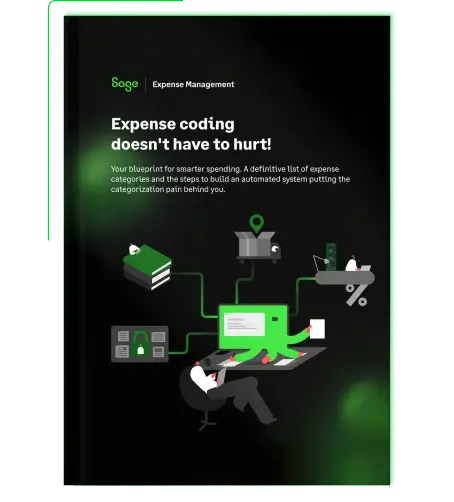Keeping a professional appearance is important in business, and sometimes that involves dry cleaning. However, when it comes to business expenses, the cost of dry cleaning clothing often blurs the line between business necessity and personal upkeep. Accountants and SMB owners need to understand the specific, and quite strict, IRS rules regarding the deductibility of these costs.
This guide clarifies when dry cleaning might be a deductible business expense and how to categorize it correctly.
Dry Cleaning Expense Category
Dry cleaning is generally considered a personal expense and is NOT deductible for tax purposes. However, there are two specific situations where it might qualify as a deductible business expense, influencing its categorization:
1. During Business Travel
- If you incur dry cleaning or laundry costs while traveling away from home overnight for business purposes, these costs can be considered part of your deductible travel expenses.
- Category: In this case, the expense falls under Travel Expenses. IRS Publication 463 explicitly includes "dry cleaning and laundry" as a potentially deductible travel expense.
2. For Qualifying Uniforms/Work Clothing
- If you are required to wear specific uniforms or specialized work clothing that is not suitable for everyday wear off the job, the cost of cleaning that specific clothing may be deductible.
- Category: This expense would typically fall under Uniform Expense, Laundry and Cleaning Expense, or potentially Supplies (as maintenance of required items).
Outside of these two specific exceptions, dry cleaning costs are typically not categorized as a business expense at all because they are considered personal.
Some Important Considerations While Classifying Dry Cleaning Expenses
The deductibility of dry cleaning is very limited. Keep these critical points in mind:
The General Rule: Non-Deductible Personal Expense
The IRS considers the cost of laundering or dry cleaning regular business attire (suits, dresses, shirts, blouses that can be worn outside of work) to be a non-deductible personal expense, even if the clothes are worn exclusively for work.
Exception 1: Travel Status
The travel exception applies only when you are away from your tax home overnight on business. Dry cleaning done locally between trips, or during same-day travel, does not qualify under this rule.
Exception 2: Uniforms/Work Clothes
This is a strict two-part test. To deduct the cost of buying or maintaining (including cleaning) work clothes:
- You must be required to wear them as a condition of your employment or business operation, AND
- The clothing must NOT be suitable for general or everyday wear off the job. (Think branded uniforms, specialized protective gear, costumes – not standard business suits or dresses).
Ordinary and Necessary
Even if meeting an exception, the cost must be ordinary and necessary.
Recordkeeping
Keep dated receipts from the dry cleaner. If claiming as a travel expense, link the receipt to the specific business trip dates and location. If claiming for uniform cleaning, be prepared to document the requirement to wear the specific clothing and demonstrate it's not suitable for everyday wear.
Examples of Dry Cleaning Expenses
Potentially Deductible Scenarios
- Dry cleaning a suit or dress shirt while on a week-long business conference away from home.
- Cleaning a company-mandated uniform (e.g., airline pilot uniform, specific restaurant uniform with logo) that you wouldn't wear socially.
- Cleaning specialized safety apparel (e.g., chemically resistant gear) required for your job and unsuitable for other use.
Generally Non-Deductible Scenarios
- Dry cleaning your regular work suits, dresses, or shirts at your local cleaner.
- Laundering clothes at home, even if primarily worn for work.
- Cleaning clothes during a business trip if you return home the same day.
Tax Implications of Dry Cleaning Expenses
- Deductibility: Deductible ONLY if incurred during qualified business travel away from home OR for cleaning required work clothes not suitable for everyday wear. Most dry cleaning costs fail these tests and are non-deductible personal expenses.
- Timing of Deduction: If deductible, the expense is recognized in the year paid or incurred, following your accounting method (Cash or Accrual).
- Where to Report (Schedule C): For sole proprietors, if the expense qualifies for deduction:
- Dry cleaning during travel: Include as part of the total amount on Line 24a ("Travel").
- Cleaning qualifying uniforms/work clothes: Report on Line 27a ("Other expenses"), specifying "Uniform Maintenance" or similar, or potentially Line 22 ("Supplies").
How Sage Expense Management (Formerly Fyle) Automate Expense Categorization & More!
While most dry cleaning isn't deductible, Sage Expense Management can help manage the process when it is, particularly for travel expenses:
- Easy Receipt Capture: Employees traveling for business can quickly snap a photo of their dry cleaning receipt using the our mobile app or forward an email receipt, ensuring documentation isn't lost.
- Link to Trips: We allows users to associate expenses with specific trips, making it easy to justify dry cleaning costs incurred while traveling away from home.
- Policy Enforcement: Companies can configure our policy engine to flag dry cleaning expenses submitted outside of a travel context or above certain thresholds, prompting review to ensure compliance with deductibility rules.
- Consistent Categorization: Ensure deductible dry cleaning is consistently categorized under "Travel Expenses" or your designated "Uniform Maintenance" category.
- Accounting Integration: Sync approved, categorized, and compliant expense data directly into your accounting system (QuickBooks, Xero, NetSuite, Sage Intacct).
The key takeaway for dry cleaning expenses is that they are usually personal and non-deductible. Only costs incurred while traveling away from home overnight for business, or for maintaining required work-specific clothing not suitable for everyday wear, qualify as potential business deductions.
Careful documentation and adherence to IRS rules are essential. Tools like Sage Expense Management can help manage and document qualifying expenses, particularly those related to business travel.
 4.6/51670+ reviews
4.6/51670+ reviews




